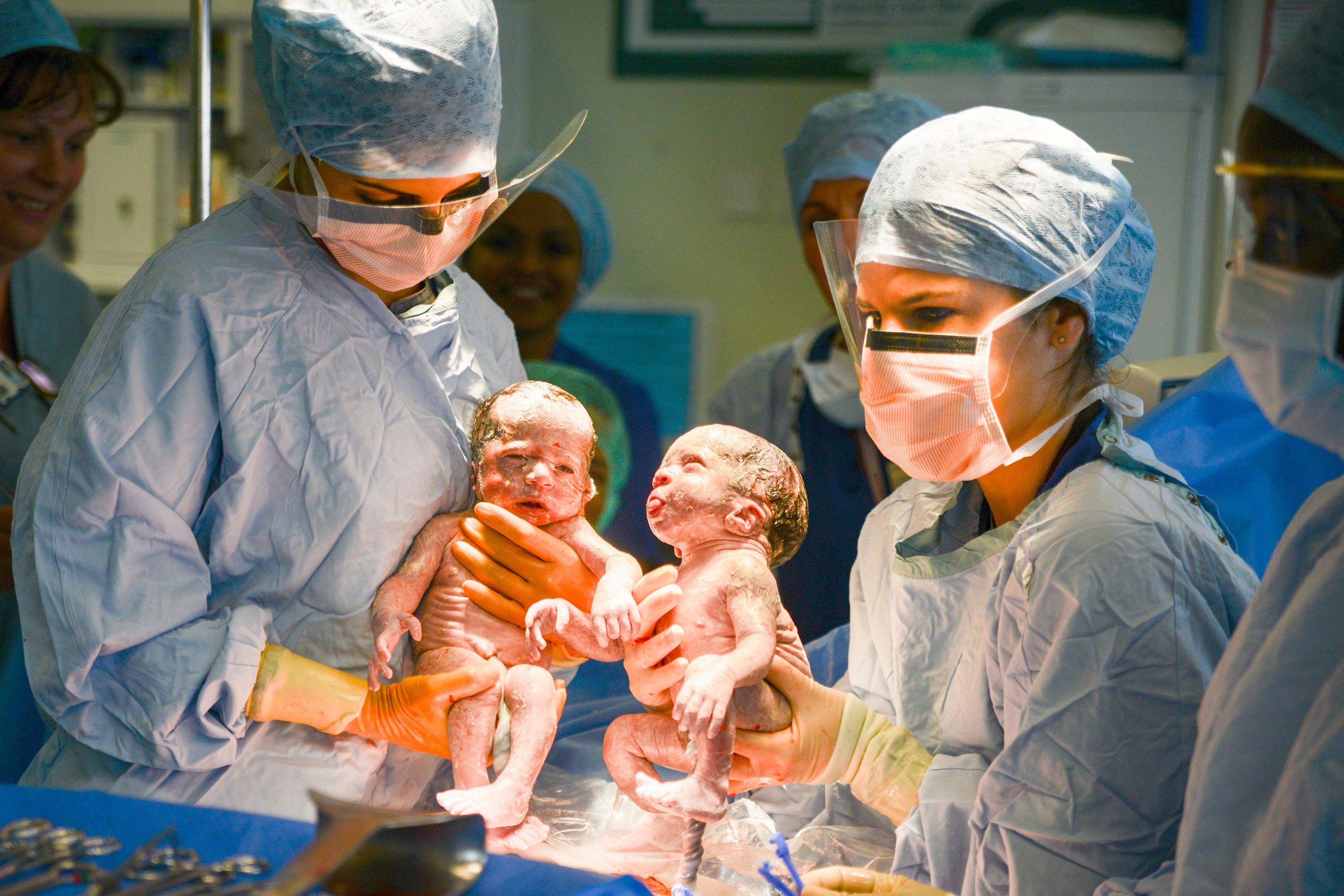Pre-birth steroids could reduce risk of death in premature twins, study suggests
Researchers found giving steroids to pregnant women at risk of delivering twins prematurely could reduce the risk of death and respiratory problems.

Your support helps us to tell the story
From reproductive rights to climate change to Big Tech, The Independent is on the ground when the story is developing. Whether it's investigating the financials of Elon Musk's pro-Trump PAC or producing our latest documentary, 'The A Word', which shines a light on the American women fighting for reproductive rights, we know how important it is to parse out the facts from the messaging.
At such a critical moment in US history, we need reporters on the ground. Your donation allows us to keep sending journalists to speak to both sides of the story.
The Independent is trusted by Americans across the entire political spectrum. And unlike many other quality news outlets, we choose not to lock Americans out of our reporting and analysis with paywalls. We believe quality journalism should be available to everyone, paid for by those who can afford it.
Your support makes all the difference.Steroids could reduce the risk of babies dying or developing breathing problems for mothers at risk of delivering twins prematurely, research has found.
Researchers at the University of Aberdeen found the use of steroids resulted in lower levels of infant mortality and respiratory disease syndrome in twins.
Steroids are regularly used to reduce the chances of neo-natal deaths, respiratory issues and other complications in babies expected to be born prematurely.
But studies usually focus on single births, twins and higher multiples such as triplets as one group.
Twins and other multiple births are 10 times more likely to be born prematurely compared to single babies.
Following calls to look at the use of antenatal steroids specifically in births involving twins, triplets etc, University of Aberdeen researchers along with colleagues from McGill University, Canada, and Monash University, Australia, have reviewed all relevant studies from across the world from 1974 to 2018.
Researchers looked at non-randomised studies that compared outcomes among twin newborns who had or had not been exposed to antenatal steroids. No restriction was applied to drug type, dosage, or number of doses.
The researchers are calling for twins to be included in future studies of this type as they are often underrepresented in clinical research.
Dr Sohinee Bhattacharya, from the University of Aberdeen, said: “This is an important review of existing literature as it has enabled us to look specifically at twins and see that they, in particular, are benefitting from the use of steroids.
“This should give clinicians further confidence that this is an appropriate treatment that results in improved outcomes for babies.
“Twins and other multiple births are often excluded from research as, due to their relatively rare nature, they are outliers in comparison to many single births.
“But it is essential that twins and higher numbers are included so that we can ensure that treatments are just as safe for them as it is for single birth babies.”
The findings have been published in Obstetrics and Gynaecology journal.